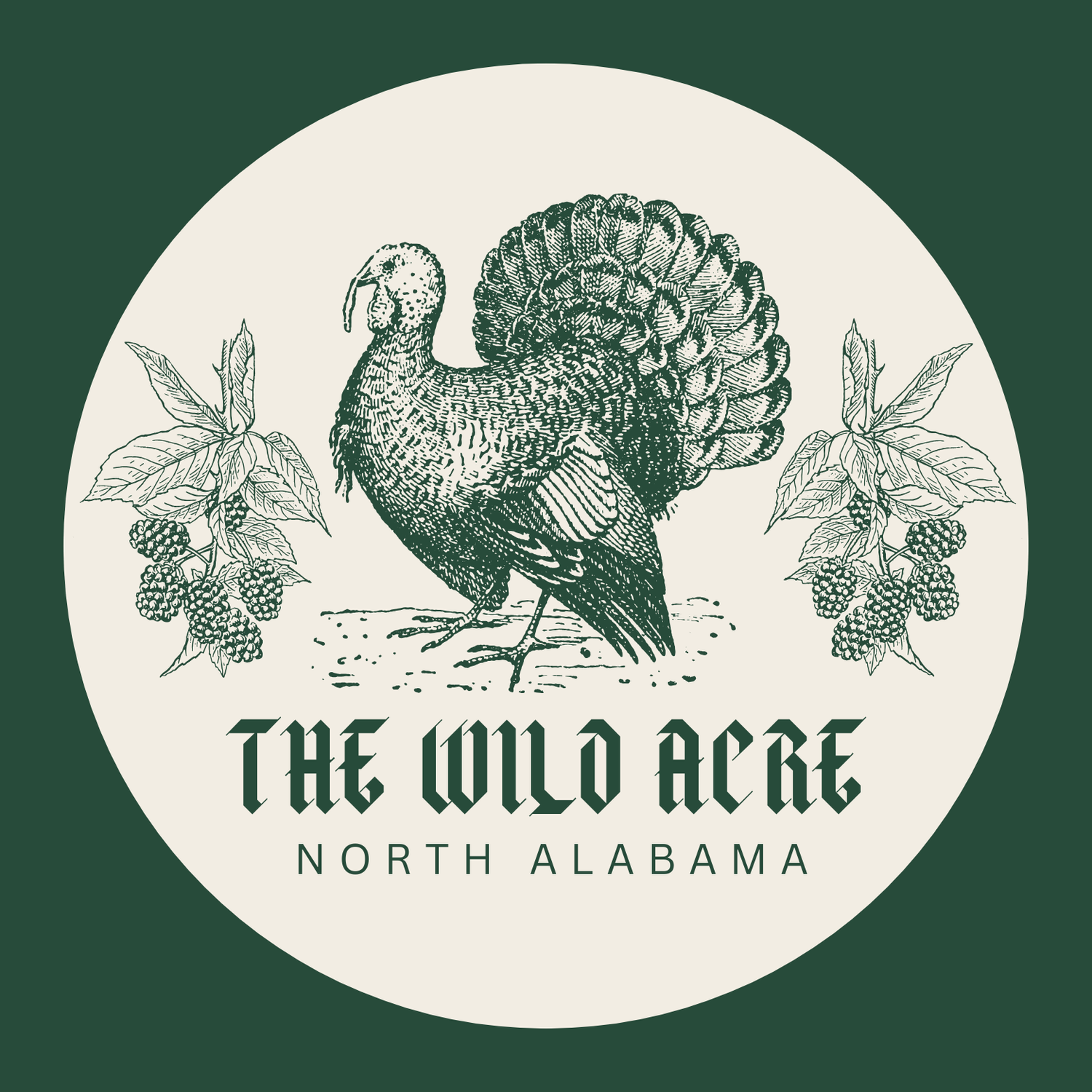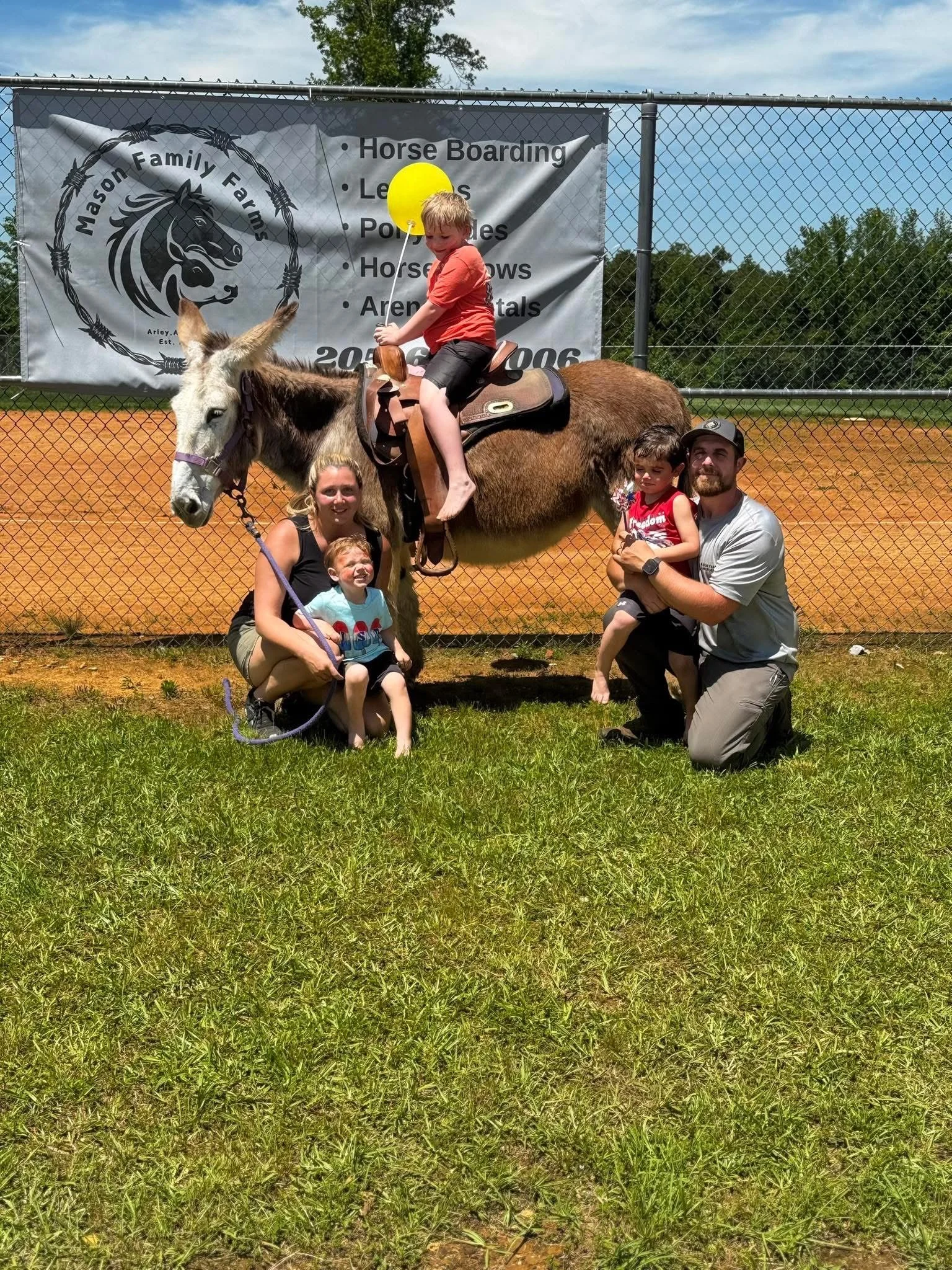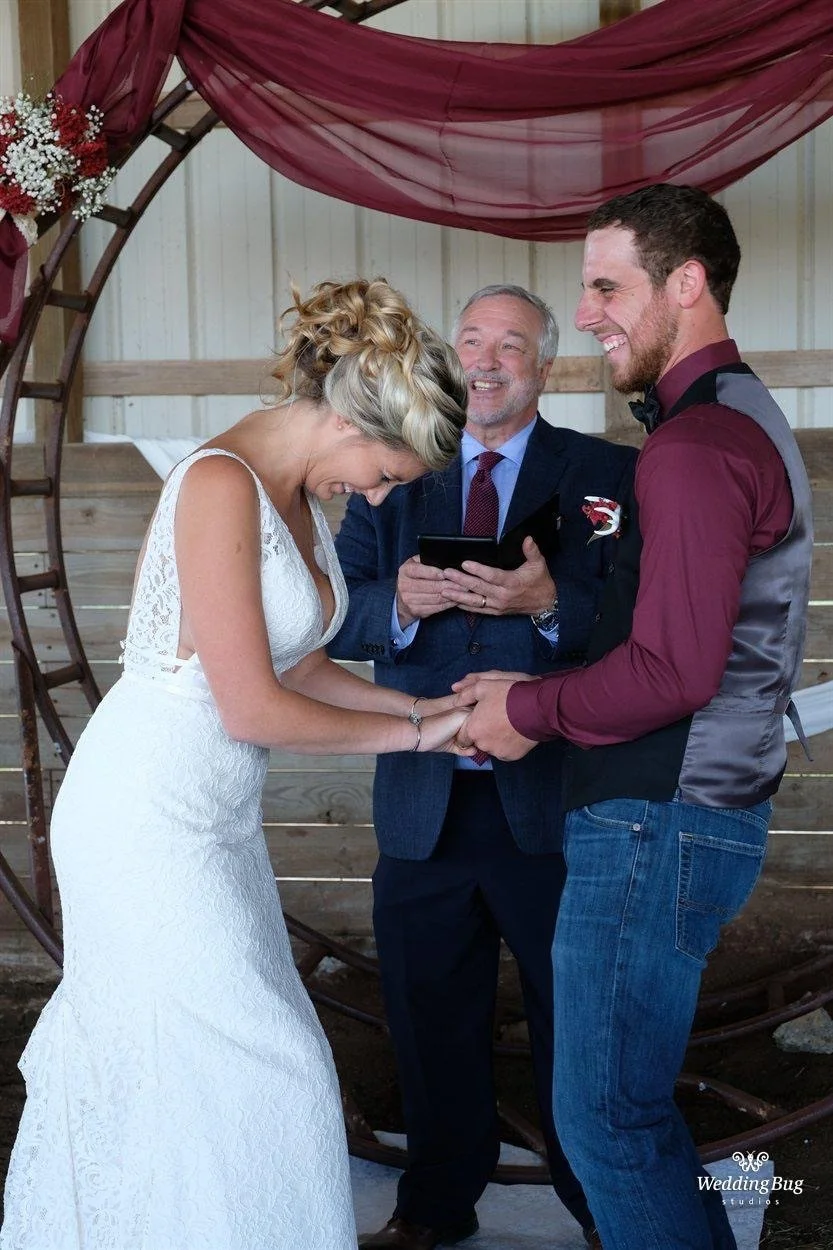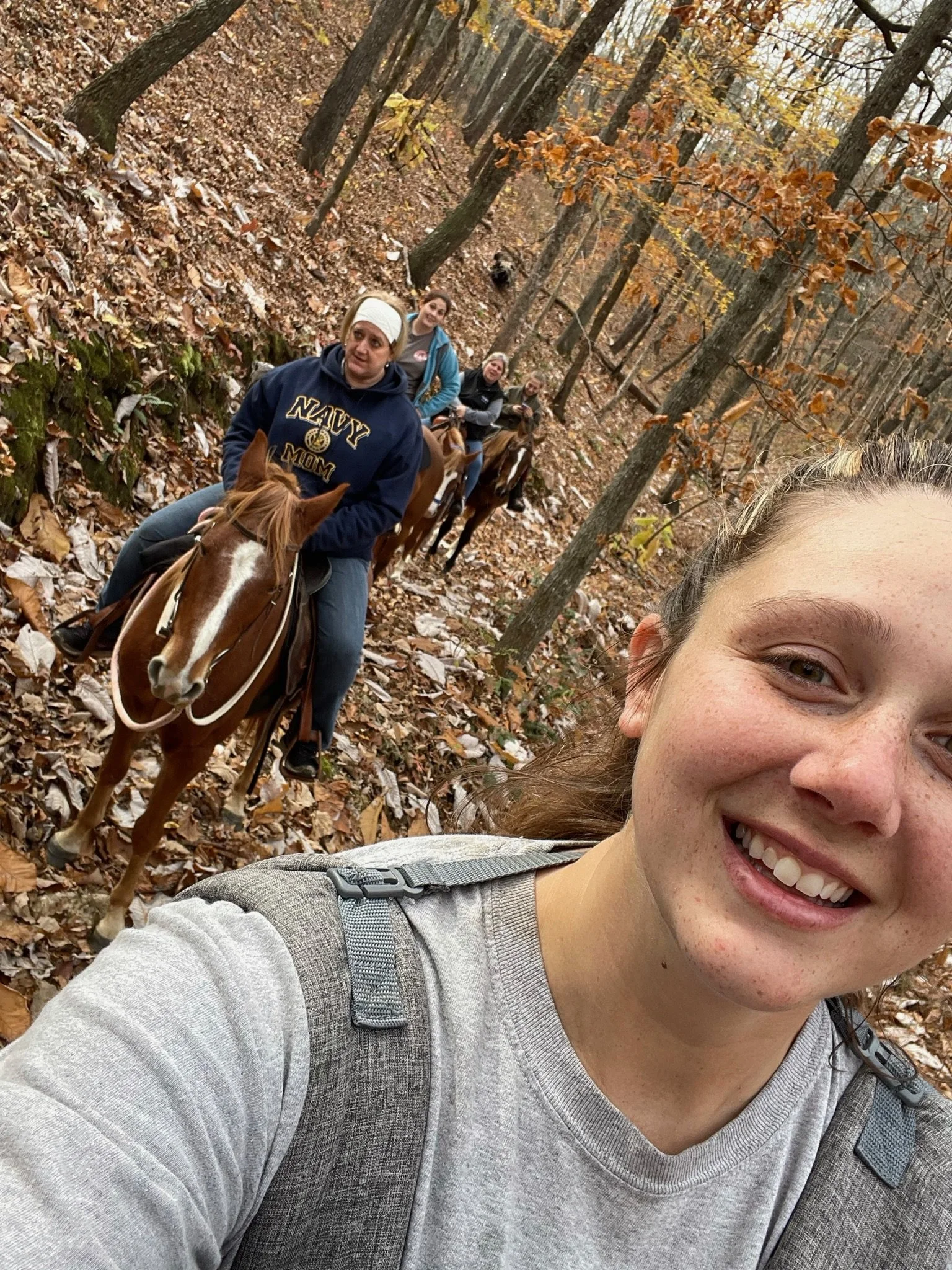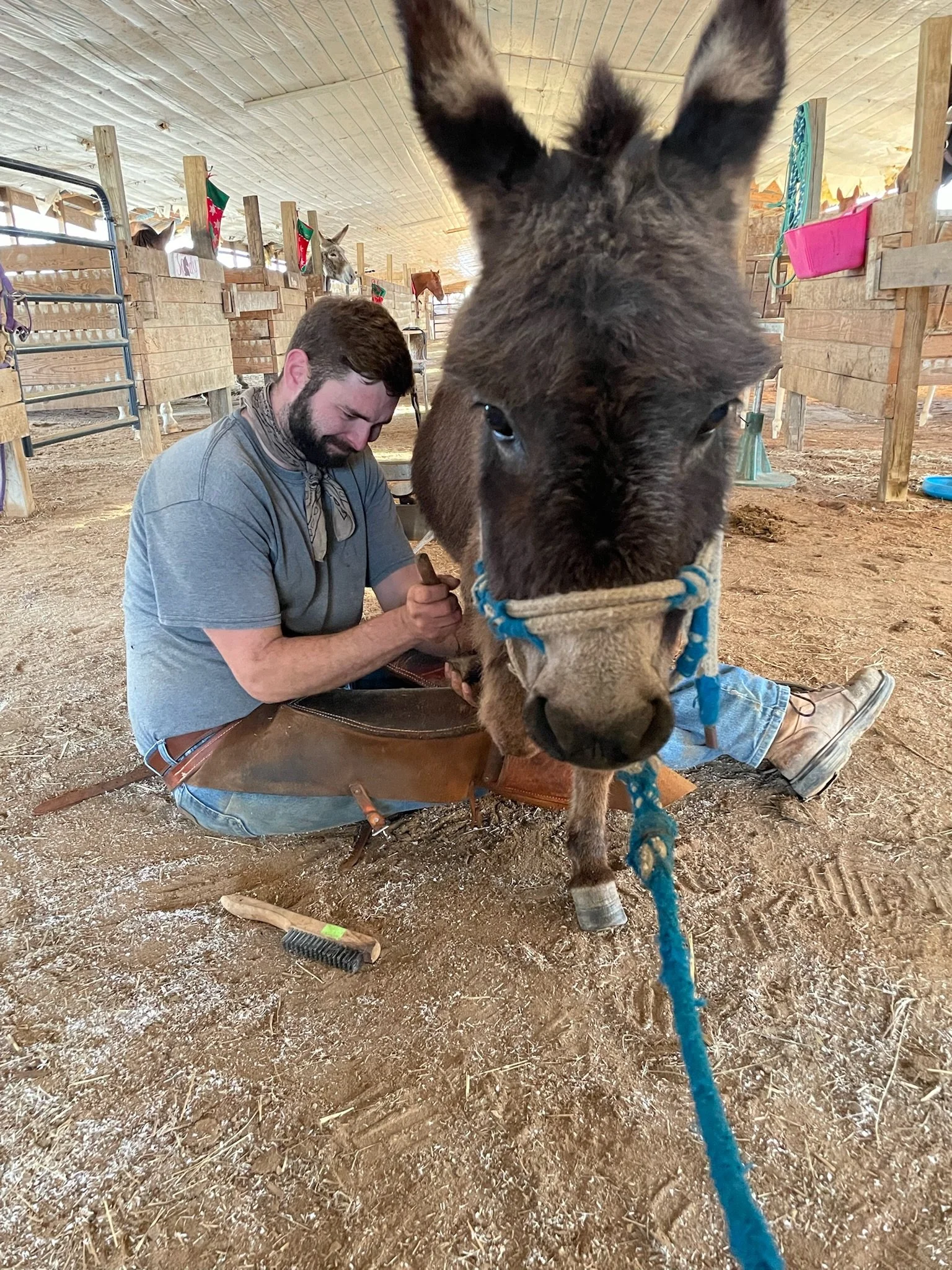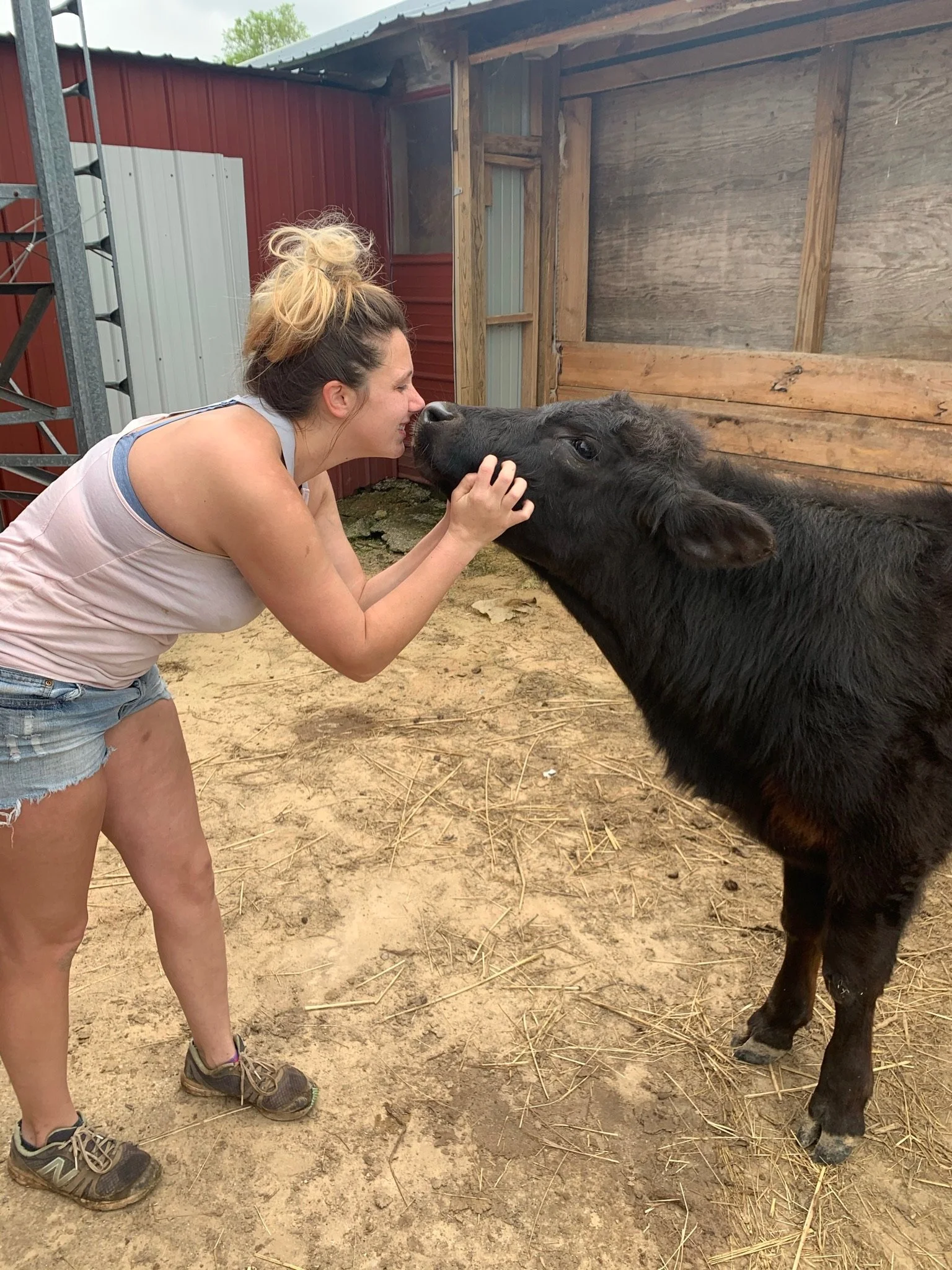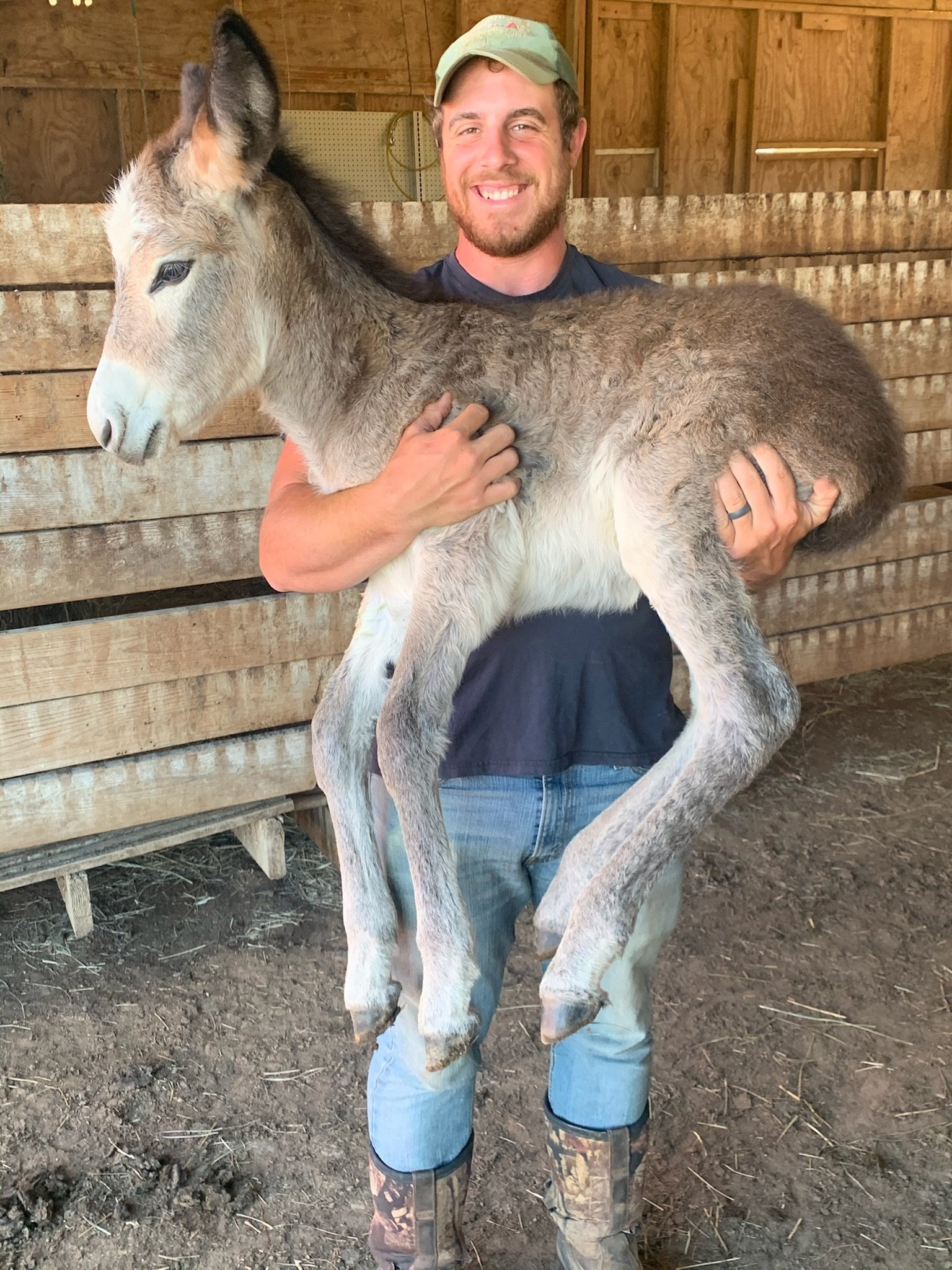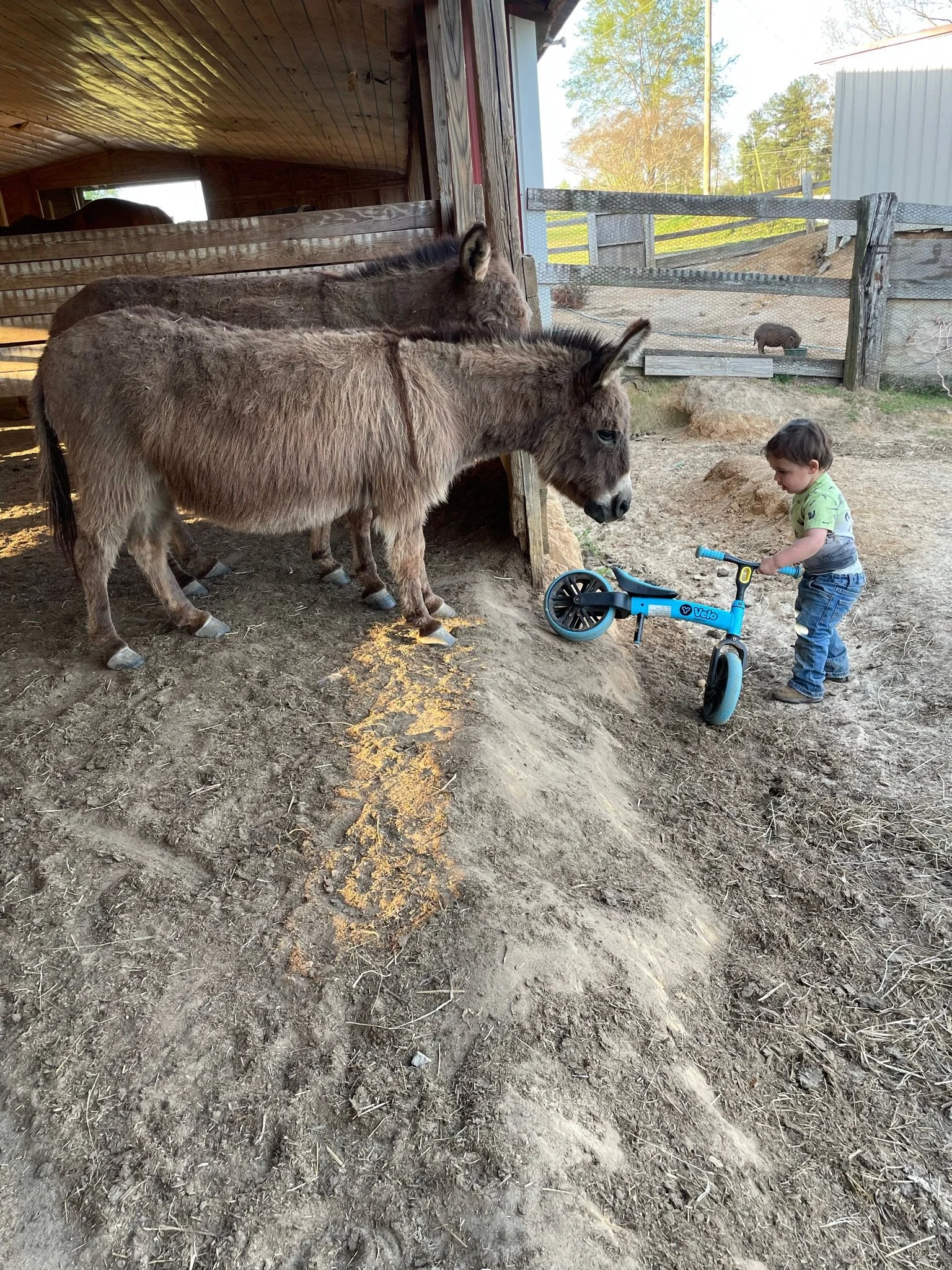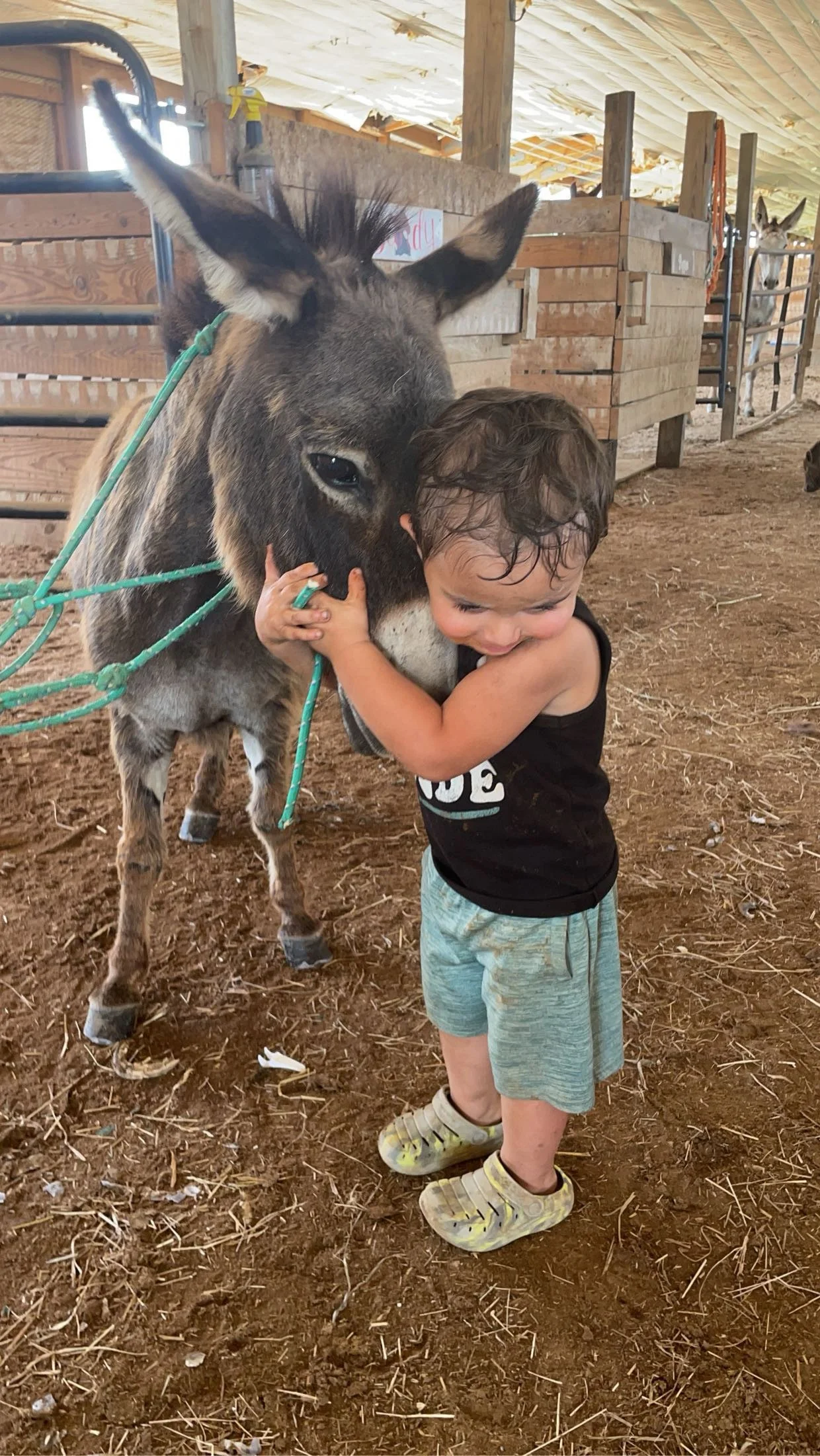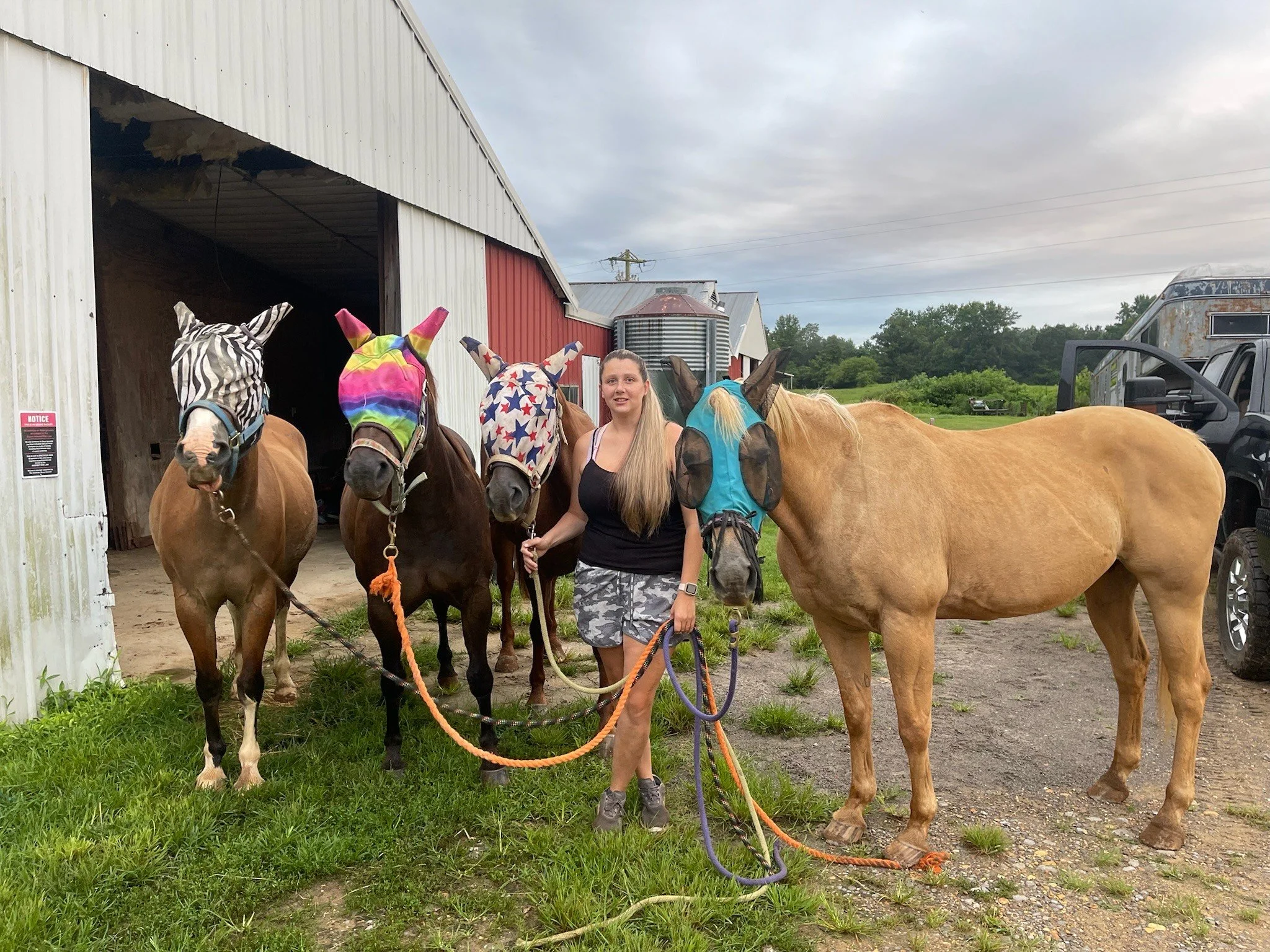From New Jersey to North Alabama: A Family's Journey to Their Dream Farm
The Mason family poses for a group photo with their beloved donkey. Image credit: Mason Family Farms
For The Wild Acre, a publication dedicated to celebrating and preserving traditional agrarian lifestyles in North Alabama, the inspiring story of the Mason family is a prime example of its very ethos. Dominique and Scott Mason, with their leap of faith from New Jersey to Arley, embody the spirit of a new generation reconnecting with the land. Their journey to build a quarter horse farm from scratch, navigate the challenges of first-generation farming, and embrace the local community in North Alabama is a testament to the enduring appeal of the agrarian lifestyle—a narrative at the very heart of The Wild Acre's vision.
__________________________________
The following is an interview with Dominique Mason about starting a farm and her family's move to Arley, Alabama.
What was the pivotal moment that convinced you to leave New Jersey and make the big move to Arley to pursue your dream of a farm?
The pivotal moment for moving was probably on our first date. I had basically flat out told Scott if he wasn’t interested in moving South within a year or two, then we shouldn’t try dating at all. We had a lot of tough conversations very early on into dating and knew we wanted to be able to comfortably raise a family on a farm without the worry of ever being able to retire. The expenses in New Jersey are exceptionally higher with far less liberties over your own property. Land cost much more per acre as well. Everything we have obtained and accomplished here would have been a lot harder, if possible at all, up there. And there are months out of the year I can work less to be home with the kids more on the farm and spend that time with family exploring and creating memories.
What has been the most surprising cultural difference or adjustment you've encountered moving from the Garden State to rural North Alabama? And conversely, what Southern charm or aspect has truly won you over?
Honestly, we did not have a huge cultural shock when moving here. We both grew up in South Jersey in the heart of farmland and a pine land preserve, which is over a hundred thousand acres. So we already loved the ruralness, and it was very clear that everyone was much friendlier. We met our neighbors very quickly, and they were very welcoming from the first moment we all met and have continued to support us.
The South had won me over before I was 16, and Scott had always planned to move down south later in life than what actually happened. There’s very little down here that has to “win” us over.
Starting a farm, even a small one, is a massive undertaking. Can you walk us through the initial challenges and triumphs of establishing your quarter horse operation here in Arley?
John, that's definitely a loaded question. Being first-generation farmers was the first big step. Scott had never taken care of farm animals before, and I helped my aunt on her farm in New Jersey. But we hardly had anything farm-related of our own and started from scratch once we bought the property. So learning to not only become farmers ourselves, but also farming in Alabama was much different than in the Garden State. Our first big challenge was finding good, clean horse hay that didn't have weeds, thorns, and especially foxtail in it. We ended up losing an elderly pony eventually because the type of hay she lived her life on wasn’t available here. And even though I spent so much time with horses before moving, I never realized how many different types of hay and how badly certain grasses will affect the hay or horses.
Establishing relationships with a good farrier, a good vet, and other neighboring farmers and blue-collar workers took a while to build in a rural community. Vets are extremely overworked in the large animal field and do not get enough credit for the amount of work and knowledge they have. Up north, my aunt had one on speed dial, and I didn’t realize how long it took for her to build up to that. Eight years later, I’m still not at that level with my vet nor would I want to add that extra responsibility onto them.
Then there were expenses. My parents and my aunt had helped with more expenses when it came to the animals than I realized. And now building our farm and adding more than just horses to it definitely cost more than we realized in upkeep. We had to find a balance, and we learned how to do 98 percent of everything ourselves. To cover these expenses, I continued working full time, and Scott started Mason Family Landscaping. So we have to juggle everything we want to build on the farm while working full time to fund those expenses.
I know that was a long answer, and I really could go on and on about the challenges, especially for first-generation farmers.
Why quarter horses specifically? And what unique opportunities or challenges has the North Alabama environment presented for raising and training them compared to what you might have experienced or expected elsewhere?
Quarter horses just have a soft spot in my heart. I love competing in sorting and penning, which, on the level I competed in, involved quarter horses. They are extremely versatile in their training and can be found in all disciplines in Western and English as well. Our biggest challenge was in the quality of hay down here compared to the hay we got up North. I had access to some of the best farmlands with rich nutrients. Pennsylvania, New York, and New Jersey just have some really nice hay fields, and they have the season to grow it. There are different types of hay down here, and it took us a long time to find something comparable. Horses cannot eat the same hay as cows, and we definitely were surrounded by a community more angled toward cattle than horses. I can say now we have found some really great connections with good horse hay and cow hay, but it definitely took us some time to get there.
You're looking to grow your farm. What does that 'growth' look like in your vision? Are you aiming for more horses, specific breeding programs, expanded facilities, or something else entirely?
Our vision has completely changed since our plans of moving South. We planned on a boarding facility and just a couple cows, and that was really the extent of it. But then COVID hit and everything changed. We wanted to raise our own beef, butcher our own chicken, grow our own food in a greenhouse, and I wanted to be able to eventually stay home from working in the retail field to help with my husband's lawn care business and work on the farm.
So we are aiming for all of it: more horses, more cows, expanding the facilities, and adding more activities here for the community, including locals and non-locals. We started with a bull calf and a young heifer, and we have slowly added and bred our small herd of cows. We want to continue to grow the herd and add a greenhouse to sustain our own family and hopefully offer to the community as well.
Once a few more upgrades are completed, we plan to offer some more boarding spots, and we plan to expand to provide horse shows on all levels. Besides the farm side of our plans, we also enjoy holding community events for the holidays here. We work hard on holding holiday events for Halloween, Christmas, and Easter so that there's something fun for the community to come together and enjoy with the family.
How has the local Arley and broader North Alabama agricultural community welcomed you? Have you found mentors, collaborators, or simply good neighbors who have helped you along the way?
We have definitely found good neighbors that we consider friends and family. I can’t count how many times our local friends have helped us with a lending hand or equipment to help us with a task that was too big for us to do ourselves. Chambers Feed and Seed in Cullman has helped us survive way too many times when we come into their store with questions ranging from calf feed to meat chicks, comparable horse feed—New Jersey brands to Alabama brands—to goat supplements. I could list numerous occasions where several people within our community would come help us, and we could never express how much that has meant to us, past and present.
What inspired you to host your holiday events, and how do you feel they connect your farm to the wider community in a meaningful way?
Growing up I always remember my parents taking me to all kinds of weekend stuff to do as kids, especially for the holidays. I used to spend hours going door to door for trick-or-treating and huge Christmas events all month long. That was all pre-COVID. I’m not really sure if it’s because of how rural North Alabama is or if COVID took away a lot of the small town activities, but we wanted to add something for kids to do. So being able to provide a large area to have kid-friendly events seemed perfect. Scott felt the same; he wanted to be able to provide multiple Christmas events because that is his favorite holiday and he wanted to give the kids in the community something fun and different to do. We get to meet so many people that come out from not only Arley but other surrounding towns too. We also work with several small towns that have town festivals to provide free pony rides during the festival. Even in a rural community, there are so many kids that have never pet or ridden a horse. The smiles and laughter that come from some of the kids make all the hard work and networking between so many people worth it.
Could you describe a typical, or perhaps a not-so-typical, day on your farm? What are the joys and the daily grind of living this agricultural lifestyle you've chosen?
Well, there's the typical day where everything goes great. Say, on a Saturday, we'll feed the animals morning and night, we’ll clean up anything that needs to be cleaned, we’ll get the grass mowed in areas that aren’t fenced in, and we’ll have the kids outside learning how to help us. But it’s the not-so-typical days that have taught us the most, like when we wake up on a Saturday to a phone call letting us know the power outage last night must’ve turned off or fried our electric fence charger and the cows were down at the neighbor's. Luckily, they are friendly and follow with feed, but now we spend 45 minutes fixing the fence and hoping we have a friend in town that’s 45 minutes away to pick up a new fence charger for us to get the electric fence turned back on. We go to feed the horses, and we have a lame one that requires some cold water hosing for a few minutes and some pain relief. Once the animals are fed, we go to start cleaning up and get to mowing. It’s rare that a weekend goes by and there’s not a mower or tractor that needs something fixed on it. Next thing I know it’s 6pm and the animals need dinner. The yard is half mowed, and all my house chores have gone neglected. I’m scrambling to thaw out frozen meat to get the family fed before it’s actually bedtime. Each day is almost never similar. It can feel never-ending and exhausting, but also there’s the feeling of accomplishment when we look back at where we started and how far we have come.
For other young couples or individuals dreaming of making a similar leap into agriculture or relocating to a more rural setting, what's the most crucial piece of advice you'd offer based on your experiences so far?
My biggest advice is to take anyone’s advice with a grain of salt, do your research, and make the decisions that are the best fit for you, your farm, and your family. Everyone’s way is the best way, because that decision was based on what is best for them and their circumstances. Everyone is so quick to throw judgment at others for doing stuff their own way when we should be learning from each other. The horse community especially is so bad about it, and everyone is extremely set in their ways. Which is fine, but it can definitely put unneeded stress on new farm owners, especially with the new-age technology and how so many people online are quick to give judgment without seeing or knowing the whole situation that a farmer may be in. There rarely is a situation where one answer is a steadfast solve-all. Farming is a way of life, and it sustains life. We want to encourage more people to learn in this field, not discourage them from jumping in head first. Or more like a cannonball.
Is there anything else you’d like to mention about your journey that you haven’t touched on:
Even though there may be a lot of challenges and hardships in farming itself, it’s extremely satisfying. And being able to share it with family helps. We are raising our boys and teaching them everything we know early on, and it has already instilled good work ethics and respect for animals early on. And my husband and I are partners in everything. Housework, raising the kids, farm chores, and his business are all kept running as smoothly as possible because we work as a team toward the same goal.
